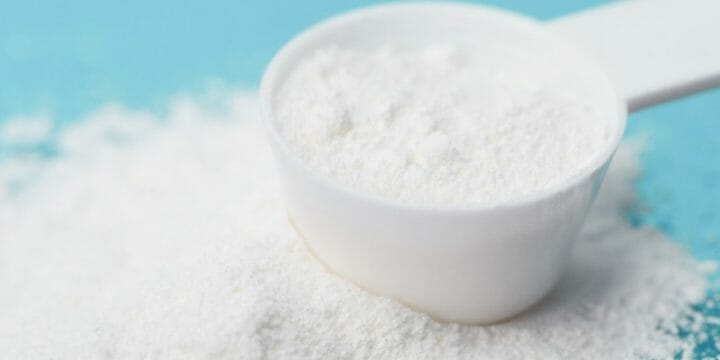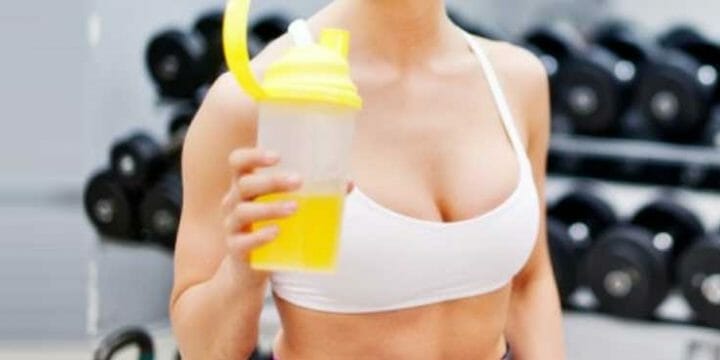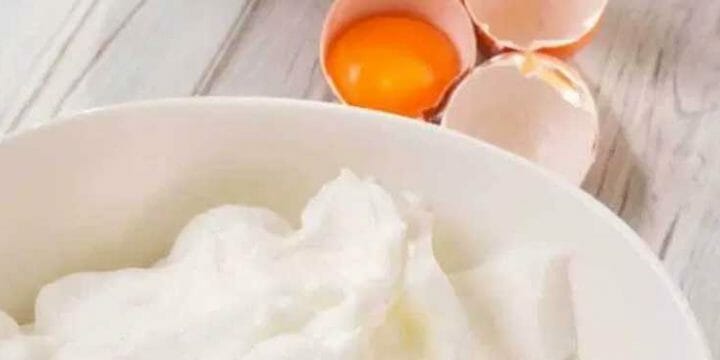As a coach, I know just how vital protein is. But, unfortunately, many people are still in the dark about what protein is and why it’s so valuable.
I’ve partnered with a dietitian to demystify this all-important macronutrient — and help you understand why you need it.
Here’s everything you need to know about protein.
Quick Summary
- Protein, a crucial macronutrient found in every cell, functions as both a building block for body tissues and an energy source.
- Balancing complete and incomplete proteins in your diet is crucial to ensure the intake of all essential amino acids.
- Harvard Health Publishing suggests an average adult should consume 0.36 grams of protein per pound of body weight, or 0.8 grams per kilogram.
- Personally, I believe focusing on a varied diet rich in natural protein sources is more beneficial than relying heavily on supplements.
What Is Protein?
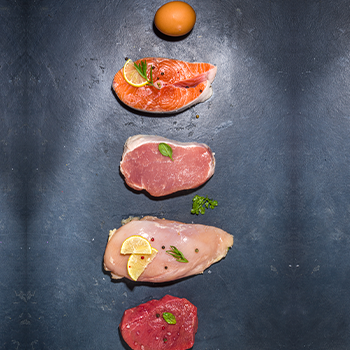
Protein is a molecule that consists of amino acids and can be found in every cell in the human body.
Here are the two main roles of protein:
- It’s the building block of body tissue. Muscle tissue, for example, is primarily made up of protein. That’s why dietitians and fitness trainers recommend high-protein diets for building muscle mass.
- It serves as fuel. While your body mainly gets energy from carbs and fatty acids, it derives around 5% of daily energy from proteins, according to the GoMacro [1].
These two roles make protein a macronutrient [2]:
“Macronutrients are the nutritive components of food that the body needs for energy and to maintain the body’s structure and systems.”
- Lindsey Wohlford, MD Anderson Wellness Dietitian
That means that proteins are the nutrients your body uses the most, besides carbs and fats.
So, it’s safe to say that they’re pretty important — which is more the reason why you should be mindful of your protein intake.
Proteins aren't just building blocks for muscles; they are critical in hormone regulation too. For example, certain amino acids in proteins serve as precursors for vital hormones like insulin, which plays a key role in blood sugar management.
Complete Vs. Incomplete Proteins
Your body needs 20 amino acids in total:
- It can produce eleven of them, which are called non-essential.
- The other nine are called essential amino acids and need to be supplied through food.
Proteins are an excellent source of amino acids since they’re entirely made up of amino acid chains.
According to the Cleveland Clinic, some proteins contain all nine essential amino acids, so they’re called complete or ideal proteins [3].
In my dietary planning, I've always emphasized the importance of complete proteins, which contain all nine essential amino acids.
Here are a few examples of proteins that are considered complete:
- Chia seeds
- Hemp seeds
- Soy
- Quinoa
- Meat (e.g., poultry, pork, beef)
- Dairy products
Other proteins that contain only a few amino acids are called incomplete proteins. Most plant-based proteins are incomplete, such as lentils, beans, and grains.
Just so we’re clear, that doesn’t mean you should avoid incomplete proteins. It only means you should combine them with the complete ones. For example, you can combine vegetables with cheese.

Why Do You Need Protein?

There are three main reasons why you need protein [4]:
- Cell production and repairment. Protein helps your body create new cells and repair the old ones. That includes cells in your skin, muscle, bones, and even hair. For example, your hair will become weak if you don’t supply it with enough protein.
- Oxygenation. A protein compound found in red blood cells carries oxygen throughout the body. That’s how different body parts get the nutrients they need.
- Digestion. Your body uses half of the dietary protein you consume to produce enzymes. Enzymes have many different roles, from facilitating digestion to aiding in DNA replication.
As you can see, protein is essential for your health and many bodily functions.
The impact of protein on gut health is an area gaining more attention. Proteins, especially from fermented foods, can positively influence gut microbiota, enhancing digestive health and overall well-being.
But when most people talk about protein today, they’re discussing it in the context of building muscles.
And eating protein for weight loss can indeed also help you build and maintain muscle mass.
That’s why the best protein foods to gain muscle are critical for regular gym-goers: without enough protein, their hard work won’t be translated into visible results.
How Much Protein Do You Need?
An average adult should consume 0.36 grams per one pound of body weight or 0.8 grams of protein per kilogram, according to the Harvard health Publishing [5]. Based on my experience, I agree with that advice.
But you might need more if you’re trying to build muscle. In that case, shoot for 2 grams of protein per kilogram or 0.9 - 1 grams of protein per pound of body weight.
To calculate your ideal daily intake, multiply your body weight with the recommended amount of protein per pound or kilogram.
Here’s an example of how a 170-pound person can do this:
170 pounds [body weight] x 1 g [recommended intake per pound] = 170 grams of protein [total daily intake].
Examples Of Protein-Rich Foods
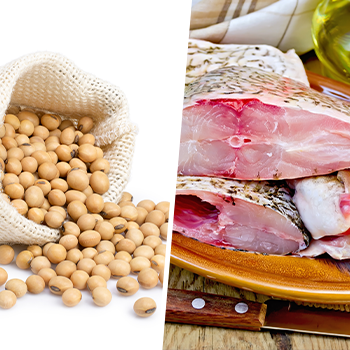
As a coach, I've always advised starting with a high-protein diet before considering supplements.
Eating high-protein foods is the healthiest way to meet your daily protein requirements.
Here are a few examples of foods rich in protein:
- Soy
- Tofu
- Eggs
- Peanut butter
- Fish and seafood (e.g., fish, clams, lobsters, oysters)
- Dairy products (e.g., milk, cottage cheese, Greek yogurt)
- White-meat poultry (e.g., chicken breast and wings, turkey breast)
Should You Take Protein Supplements?
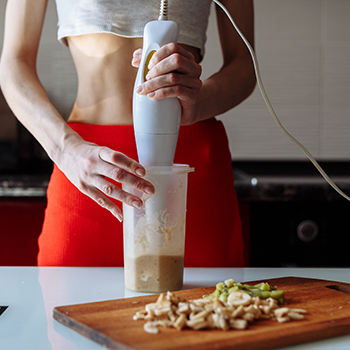
From my experience, I suggest protein supplements only when your regular diet doesn't meet your protein requirements.
Start by calculating your ideal protein intake, and then assess how much you're getting from your diet.
For muscle building, for example, a 170-pound person typically needs 170 grams of protein daily.
If reaching this target through food alone is challenging, supplements might be helpful.
Just consider that 100 grams of egg whites — the most abundant source of protein when it comes to foods — contains around 11 grams of protein [6].
A 170-pound individual requires a substantial amount of protein, equating to over 1500 grams of egg whites daily for muscle building.
Since it's impractical to rely solely on egg whites or similar foods for protein, supplementing with protein powders can be an effective alternative.
These powders can be blended into tasty shakes with ingredients like almonds, bananas, and milk, ideally consumed around workout times for maximum benefit.
Choosing the right protein powder depends on dietary preferences and goals.
Most people opt for whey protein powder. It’s easy to digest and contains all nine essential amino acids.
But keep in mind that whey is based on dairy. If you’re lactose intolerant or sensitive to dairy, plant-based powders will be a better option for you.
References:
- https://www.gomacro.com/does-protein-provide-energy
- https://www.mdanderson.org/publications/focused-on-health/what-are-macronutrients-.h15-1593780.html
- https://health.clevelandclinic.org/do-i-need-to-worry-about-eating-complete-proteins/
- https://www.piedmont.org/living-real-change/why-is-protein-important-in-your-diet
- https://www.health.harvard.edu/blog/how-much-protein-do-you-need-every-day-201506188096
- https://www.nutritionix.com/food/egg-white/100-g
About The Author
You May Also Like

